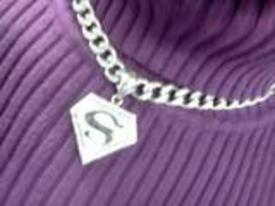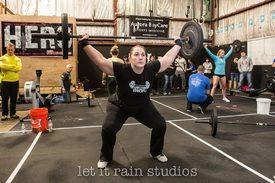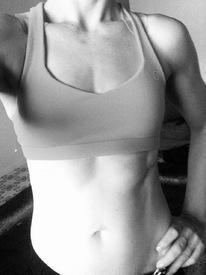Marathon runners why are they not all stick thin???

kjensen15
Posts: 398 Member
My older sister has been involved in running marathon for about 4 years now. She is planning on running 4 next year. She runs probably 30-40 miles per week. From a conditioning stand point she is in great shape but it kind of baffles me that she is still slightly over weight. Using BMI she would probably be at the very upper end of a "healthy weight" if not at the lower end of "over weight". She carries her excess weight in her lower stomach, hips, and thighs. I thought at first that maybe it was just her body and the way she was built. However, after meeting some of the people in her running club there are SEVERAL that I would consider serious runners that are heavy. The majority were not the stick thin people that you think of when you think of distance runners.
I was just curious as why this would be? Do their bodies become so conditioned that running is no longer a "fat burning" workout for them?? Is it they are over eating as a way to fuel their runs? Are they not eating enough to replenish after their run so the body hanging onto that fat thinking it might need it later??
This was just something I was thinking about while I was doing my nice 3 mile run this morning!
I was just curious as why this would be? Do their bodies become so conditioned that running is no longer a "fat burning" workout for them?? Is it they are over eating as a way to fuel their runs? Are they not eating enough to replenish after their run so the body hanging onto that fat thinking it might need it later??
This was just something I was thinking about while I was doing my nice 3 mile run this morning!
0
Replies
-
This content has been removed.
-
I've also wondered how it is possible that long-distance runners don't look extremely athletic! My only guess is maybe diet, and also perhaps what else they do besides run. If all they do is run, those are the only muscles you use. Strength training and cross training helps tone your whole body and keeps your muscles doing new things0
-
Weight loss, and how our bodies subsequently look, is 80-90% diet and 10-20% exercise. You can exercise til your heart's content but if you're eating more than you're burning you are not going to lose weight. Because she runs so much she probably doesn'r feel the need to watch what she eats as closely as a lot of us do. I bet if she started counting calories her body would shrink.
 0
0 -
I've also wondered how it is possible that long-distance runners don't look extremely athletic! My only guess is maybe diet, and also perhaps what else they do besides run. If all they do is run, those are the only muscles you use. Strength training and cross training helps tone your whole body and keeps your muscles doing new things
My sister goes back in forth with lifting weights. Some times she does, like before her wedding, but most of the time she is perfectly content just running. By the way the club she is in, I swear its a cult! They do EVERYTHING together and when they are together running is all the talk about. It's really strange! This is one of the reasons I've never wanted to get involved in this kind of running, I don't want it to completely consume my entire life!0 -
I remember watching the Biggest Loser and one of the finalist was getting ready for the marathon and started eating more and he gained 15 lbs! You can run and run and run, but if you are eating TOO much, you're going to gain weight!0
-
Conditioning and diet - you can run 300 miles a week, but if you consume too many calories or the same amount that you're burning, you're not going to lose no matter what. Cross training is VITAL to long distance running - particularly strength training, you have to work different muscles (and give your running muscles a break!) plus losing BF/gaining muscle will lend you to burn more calories at rest.0
-
I think that you have the same view of marathon runners that I use to have. I would see the olympics or winners of the NYC marathon and they were the rail thin people. And that was my view of a marathon runner for the longest time. And to run a marathon in roughly 2 hours (That is around 13 miles an hour for that time) I am sure that is the type of shape you would need to be in. But most marathon runners are not competing at that level.
Just my 2 cents.0 -
Surely some of it must be genetics? What about the people who eat all day - aren't healthy, but look stick thin? I knew a girl in college who was overweight and started training for Marathons... she lost a lot of weight but she still has pretty much the same shape and would probably looked at still as a bit on the heavy side. I'd love to hear someone who has a profession in the fitness industry weigh in on this.0
-
the more you do the same exercise the more "efficient" your body becomes at doing doing it and the more they run the stronger the heart the less hard it works. a lower heart rate = less total caloric burn, higher efficiency = lower caloric burn. The more you run the less calories you burn doing it due to the reasons above. To achieve the same caloric burn, after a period of training, you would have to either increase intensity (speed, or incline), or increasing the duration, time.0
-
There is the one lady at my gym that is all she does, is run, someone says she runs twice a day. She isn't little by no means, but you can tell that she doesn't do other circuit training or anything to mix it up. She still thick in the middle and legs are no runner like. That is why on top of my running, I switch it up and do some circuit training or 30 shred or video to mix it up, keep the muscles guessing.0
-
They could also have underlying medical issues that make it harder for them to lose that weight.0
-
I had a similar experience when my wife and I did the Team in Training marathon a few years ago. Many of the most dedicated runners did not have the body shape we expected. Then, we started eating with them. The carbo-loading before runs (daily), the sports drinks for re-hydration, the mid-run snacks and gels, and the post run "celebration" meals were way off the charts on calories.
I agree with the above posters that weight loss is mostly diet, but no matter how much you burn, you can always eat more.
--Carter0 -
I have noticed since she's gotten married the amount of diet soda she drinks has increased exponentially. I think largely in part to her new hubby b/c we are a NO pop family. I actually can't stand the stuff most of time, unless its the occasional rum and coke zero!
 I have also notice and increase in sugar intake! She was never one to have dessert but now she is always the first one to grab a cookie, brownie, cake, whatever it might be! This observation may prove two things... she is eating a lot of calories and refined sugars so that could be haulting any weight loss... and maybe is the increase in consumption of artificial sweetners causing an increase in cravings for refined sugars???? 0
I have also notice and increase in sugar intake! She was never one to have dessert but now she is always the first one to grab a cookie, brownie, cake, whatever it might be! This observation may prove two things... she is eating a lot of calories and refined sugars so that could be haulting any weight loss... and maybe is the increase in consumption of artificial sweetners causing an increase in cravings for refined sugars???? 0 -
They could also have underlying medical issues that make it harder for them to lose that weight.
My mom and I have wondered if she might have a thyroid issue... but how do you really tackly asking her that one?? We would never want to offend her or hurt her feelings?? On a side note my mom is about 5'6" and weighs maybe 115lbs, she's a bean pole and always has been, so this question coming from the women with chicken legs could be seen as offensive.0 -
I know that this may be a very novel idea, but many people runners view running as therapeutic and its a mental exercise as much as a physical one. I can't think of a single person who runs those kinds of distances just to 'work out'. It may be that a large number of these "marathon runners" are perfectly happy with their bodies- just imagine, if you were running marathons and your body worked that well; how consumed would you really be with what it looked like?0
-
They are usually eating too much food. They are still serious runners and serious about their runs, but they aren't doing the science for the lean bodies. Those runners that are super thin usually have a calorie intake of approximately 2,000 calories a day. They eat a diet high in the good carbohydrates, lean meats, and other healthy foods. When these guys train for long distance running, you won't find them eating too much fast food. You might ask one of those long distance, thin runners what they're eating, and they'll act like they're eating anything they wanna eat, but I guarantee that they start the day off eating whole grains, fruits, and lean meats: egg whites, tuna, or something high in protein low in fat. You might walk past one of these lean runner's desk, and watch them tear into a candy bar, and ask yourself, "That's a part of your diet?" It's just fuel for the fifteen mile run they're about to do after work. Everything those thin runners put into their bodies is a calculation to ensure they're the fastest runners in any race. These runners will run a race in under three hours on average.
The thicker runners are usually out there for the love of running, and don't necessarily care about winning the race. Yeah, they would like to win, but they aren't all scientific about the diet. They'll eat what they want when they want, and run a marathon for the fun of it. These runners' monies support and pay for the races and the winning prizes that usually go to the professional runners. The majority of runners fall into this category because running is a pastime activity. You'll find body types of all different levels in this category, but the majority will have a little extra cushion on them. They usually run a marathon in three hours or more. There are a few that can run faster than three hours, but they are the exception.0 -
My wife has run 4 marathons and when she ran the Richmond Marathon last month I was also amazed at the ages/shapes/weights of people running... I guess it is all about calorie intake... If you eat all the calories you are burning then you can't lose weight.....0
-
My wife has run 4 marathons and when she ran the Richmond Marathon last month I was also amazed at the ages/shapes/weights of people running... I guess it is all about calorie intake... If you eat all the calories you are burning then you can't lose weight.....
I read an article about this a few weeks ago that talked about a lot more people running marathons these days. I think the article contributed the spike in marathon running to all the stars now running marathons: Al Rocker, Lance Armstrong, some ex-football players, and so on.0 -
I would tend to agree with the other posters who have mentioned different exercises. About a month ago, I focused solely on running, and didn't do much of anything else. I thought for sure that because I had the stamina to run 5k, I could complete a cardio workout video no problem Big mistake! That video challenged me hardcore. I could barely complete it while the run seemed like nothing. It's all about challenging your body, that's when you see changes.
L.0 -
Last year I attended my 1st marathon, running the half. I was amazed how many people didnt look like runners at all.0
-
Simply put, they are eating back what they burn off through running. Obvious really! Do a half marathon and thats only like 1500 calories...easily eaten back with a pizza hut. huge desert/ eating lotus throughout the day.
With regards other comments...cross training is NOT vital for long distance running. Cross training will not even make you a faster runner. It might make you less injury prone, and keep you busy on rest days, but it is certainly not vital for long distance running. To be a better runner you simply need to run more.
Also, with greater fitness does NOT come greater biomechanical efficiency. In other words, just because it becomes easier to run long distances, it does NOT alter the total energy requirement to run that distance (the total caloric burn). A lower heart rate does not mean less calories are used.0 -
I gained weight while training for my marathon. Mainly because I was hungry all the time. Plus you use gels and what not to keep your energy up there on the road. However, I didn't increase in size at all. I wore the same clothes, had the same measurements etc etc. And as soon as I was done training, my weight dropped back down, plus 10lbs more. I'm sure it was because I was eating, sleeping, and training, then repeating

I do have thyroid issues, and honestly, weight isn't the only problem connected, it is simply a lack of energy too.
I love it when the bigger people run past me, I'm so proud of them for being out there and moving and doing this type of event. Marathoning isn't as much physical as it is mental, anyone can run, but not just everyone runs a marathon. It's not about the physical fitness to some, it's about the determination and dedication.
I also look at the super thin ones and justify it's genetic - I just wasn't built like that.0 -
I think it has to do with diet. Many runners carb up, but may not concentrate on lean proteins. Some do not do resistance training either and they don't work on lean muscle tissue. That may be the reason why your sister doesn't look leaner from all the running she does.0
-
Initially I agree with the whole - they are eating more than they are burning theory.
But then I thought of myself ... a fat runner... who is just a work in progress.
Are people looking at me laughing at me wondering how I can possibly eat the excess calories from my run?
Im a work in progress... and probably look hysterically funny on the track in my tight capris and tank top ... but I have no other choice because if you dont wear moisture wicking clothing for distance running it all chafes... yuck!
Im gonna do my first half marathon... and people will probably look at me and think... wow how is she so fat?
But... ponder this one... I havent lost hardly a pound in the last month, yet my clothes keep getting looser?
Conversion from fat to muscle? I never bought that idea, but it just might be true!
I for one, commend the heavy runners. I look for them at every race ... and I always pick one or two to go over to and say "hey you kick butt!"0 -
I was reading a book about running and one of the sections was on diet and nutrition. The author quoted a fellow runner saying that "he ran because he liked to eat". Fair enough, I thought. Running burns serious calories and would enable a person to eat more and not gain weight. However, it is about getting that balance right.... it's easy to eat way over your calorie requirements if you don't count them.0
-
This topic has often puzzled me. I am currently training for my first marathon & am no stranger to dieting/counting cals & weight loss. From years of various workouts I have learned that running 3 miles a few times a week leads to weightloss where as running 6+ miles leads to gaining. I think this is because every little calorie you consume your body stores because runs that are that long leave your body going "wtf?" and it clings to calories that much more. I've been down to 125 lbs (5'7" female) but I was the weakest I've ever been in my life doing only 120 minutes of cardio a week & simply some ab routines & lat pull downs, now I'm at 140 lbs, my pants barely fit & I've gained quite a few inches on my waist, but I can easily run 6 miles without breaking a sweat & lift more weight than ever. Some is clearly muscle, but there's definitely fat there too despite eating well under 2000 cal a day most of which is protein & fiber. In conclusion, must be genetics for most.0
-
It's all about the food. A *lot* of people think to themselves, "I'm running so much that I can eat whatever I want" when in fact they aren't actually running enough for what they eat.
To be honest, 30-40 miles per week is NOT a large amount of running for a marathoner.... most marathon training programs peak the mileage quite a bit higher than that. The pros are running 100+ miles per week, consistently, and average people will usually peak with at least 50 miles per week.
Two years ago I was training for a 50 mile race and my training mileage was pretty high (60+ miles in some weeks) and I was constantly hungry, ate a ton, and still lost weight. So it can happen, but your mileage has to be pretty high. Now I am running about 25-35 miles per week and have to watch my calories or I will overeat.
Also, as someone said above... it doesn't always matter. I'm happy to have a body that is strong and healthy, and can do what I want it to do... so I don't obsess over a few extra pounds. Sometimes the number on the scale (or on the size tag) really doesn't matter.0 -
I'm about to run my second half marathon in just over a week and my body type sounds exactly like the type you described.
I eat to fuel my runs, but still at a deficit about 85% of the time. (I have a Body Media Fit that I've worn for about a year and a half)
I never lose weight while I train for a race. Sometimes my middle gets a little leaner, but not by much. And my weight at the start of training is almost exactly the same as at the end.
My training schedule includes two nights of full body, heavy lifting, strength, along with speed intervals and cross cardio, so it's not just all running.
I eat about 40/30/30 on most days and then closer to 50/25/25 on the heavier cardio days (long run days mostly). I eat about 80% fresh, homemade from scratch foods, more than enough veggies, whole grain carbs, and just generally as good as I can. I don't eat back 100% of my calories but I pay attention to my daily deficit and try to stay around a 500-800 calorie deficit each day. But the weight doesn't budge.
As soon as I stop training, continue eating in the same healthy manner, the weight starts coming off again.
Once I started running in earnest and training for races, I've actually put back in 20lbs that I'd lost prior to race training. Again, keeping a caloric deficit about 85% of the days that whole time. So I'm actually looking forward to getting this next (last) race done and over with to see if I can drop this weight back off.
Whatever it is about running, it just doesn't act as a weight loss mechanism for me. I have two friends that as soon as they started running they leaned out into beautiful runners bodies. Another friend started running with them and has had the same results as me. We've compared notes and we're all doing pretty much the same thing (though the leaner folks are actually less meticulous about weighing and portioning as I am). But what works for one body just won't necessarily work for another. So it's time for me to get back to what was working for me before I tried running. And it may just be the same thing for your sister.0 -
When I decided to run my first and only marathon, so far, I was at my heaviest after coming off of a knee injury. I was at 150 lbs (a lot for my 5'1" frame) starting from zero cardio fitness. Hadn't moved much while recovering. I did slowly lose 12 lbs while training, but was still a hair "obese" according to my BMI, come race day.0
-
I almost wish I hadn't read this thread...
I am a fat runner. I have completed several 5Ks, a 10K, an obstacle race, and I'm training for a Spartan Sprint in Dec and my first half marathon in January.
Runners do not run because they are trying to be rail thin. Running is not the exercise to do if you are looking to drop 30+ lbs. Runners do it because we love it. Something inside of us pushes us to go from walking to jogging to running.
This thread has reminded me of what other people must be thinking when they see overweight runners like myself out there pushing through 1, 2, 13 miles. I have to really concentrate on not letting it get to me that ppl are judging me for my size.
I started running to prove to myself that just because I was "fat" did not mean I couldn't do it. And I was right. I love it when people are awesome enough to come up to me after a race and say, "You were great out there. I wish I could do that!" I hope one day other people will stop looking at running as only a sport for the incredibly thin person. I have friends who are at a healthy weight who can't keep up with me during runs.
Try not to look at us "fat" runners as people who "run to eat". We run because we can. We run because we must. We do NOT run to lose weight.0
This discussion has been closed.
Categories
- All Categories
- 1.4M Health, Wellness and Goals
- 398.1K Introduce Yourself
- 44.7K Getting Started
- 261K Health and Weight Loss
- 176.4K Food and Nutrition
- 47.7K Recipes
- 233K Fitness and Exercise
- 462 Sleep, Mindfulness and Overall Wellness
- 6.5K Goal: Maintaining Weight
- 8.7K Goal: Gaining Weight and Body Building
- 153.5K Motivation and Support
- 8.4K Challenges
- 1.4K Debate Club
- 96.5K Chit-Chat
- 2.6K Fun and Games
- 4.8K MyFitnessPal Information
- 12 News and Announcements
- 21 MyFitnessPal Academy
- 1.5K Feature Suggestions and Ideas
- 3.2K MyFitnessPal Tech Support Questions


















